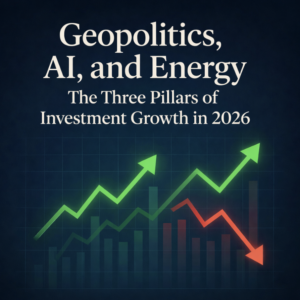The Top-5 books on investing you should read to boost your returns in 2021
![]() Marc Kennis, January 1, 2021
Marc Kennis, January 1, 2021
1 January 2021
Some months ago the team at Stocks Down Under were looking for a Staff Writer for our publication. It’s not the easiest of jobs. To be a good writer on ASX-listed companies you’ve got to have a strong general knowledge when it comes to industry and finance, solid research skills and the ability to write clearly and quickly. We like to joke that even if Ernest Hemingway were available, we still wouldn’t hire him. Not only would he keep drinking the beer we keep in the office fridge for Friday Beers with Marc and Stuart, but he also wouldn’t know his stocks since they didn’t tend to discuss that sort of thing at Gertrude Stein’s salon.
While we were looking for our candidate, we painted the following scenario: Imagine if a modern-day Hemingway did join Stocks Down Under. After all, Hemingway’s core skill as a working journalist would probably get him there if he persevered, and, as the great man himself would probably tell us at his job interview ‘There is nothing to writing. All you do is sit down at a typewriter and bleed’. But how would we teach him to bleed about stocks? In the end we decided it was simple – give Ernie some of the best books ever written about the investing and the markets and tell him to read them before he wrote his first article.
How Ben and Peter got rich
Below is the list we came up with for Ernie to start with. If you work your way through it, you may not be ready to win the Nobel Prize with articles like ‘The Old Man and the Market’, ‘The Stock Also Rises’ or ‘For Whom the Bell Tolls at 4:00 PM Weekdays’. However, we guarantee you, if you pay attention on the way through, you’ll be a better-trained investor at the end of the exercise than you were going in.
The Intelligent Investor by Ben Graham. Benjamin Graham was the father of value investing. The first edition of The Intelligent Investor was published in 1949 and it’s been in print ever since. Graham taught that the owner of shares should treat them as his share in the business. This book is where we get the story of Mr. Market, a man about as crazy as Hemingway was in his later years who shows up every day offering to buy your business for a different price. You sell to him when he gets irrationally exuberant. What would Hemingway say after finishing this one? Maybe this line: ‘The world breaks everyone, and afterward, some are strong at the broken places.’
One Up on Wall Street by Peter Lynch. This book teaches you that what you already know is a good start. Good stocks, says Lynch, are everywhere because from the supermarket to the workplace we encounter products and services all the time. By paying attention to the best ones, we can find companies in which to invest before the professionals discover them. Some of them, he suggests, could be ten-baggers. Lynch offers guidelines for investing in cyclical, turnaround and fast-growing companies. We imagine after Hemingway had absorbed Lynch’s wisdom he would say ‘If a writer knows enough about what he is writing about, he may omit things that he knows. The dignity of movement of an iceberg is due to only one ninth of it being above water’.
Three other classics
Common Stocks and Uncommon Profits by Philip Fisher. Philip Fisher was the master of finding the growth stock. He emphasised the importance of listening to ‘scuttlebutt’, but then talking to management themselves. A classic Fisher move was to buy the stock right when a new factory is being commissioned and the market is worried because of the plant’s ‘teething problems’. We reckon when Hemingway finished Common Stocks and Uncommon Profits, he would have commented that ‘I like to listen. I have learned a great deal from listening carefully. Most people never listen’.
The Little Book That Beats the Market by Joel Greenblatt. Joel Greenblatt is a value investor whose magic formula for beating the market is ranking stocks on the basis of two variables – the earnings yield and the business′s return on capital. Greenblatt offers statistical proof of the formula′s success in his little book. If you prepare a portfolio of 20-30 stocks that meet both high return on capital and high earnings yield you will beat the market over the long term, i.e. at least more than 3-5 years. We reckon Hemingway would like this book so much he’d wave this volume and say, ‘There is no friend as loyal as a book’.
The Millionaire Next Door: The Surprising Secrets of America’s Wealthy by Thomas Stanley and William Danko. This book was the first major study of what the rich but not famous are really like, in terms of how they get there and stay there. Hemingway would likely be surprised at how little time it takes to maintain an investment strategy once it has been formulated. He would likely pass this to his friend Scott Fitzgerald with the following acerbic line: ‘Let me tell you about the very rich. They are different from you and me. They have more money’.
The team at Stocks Down Under wishes everyone a healthy 2021 … physically, mentally and financially!
Want to give your portfolio a boost?
Let us help you with in-depth research on more thatn 1,100 ASX-listed companies!
Get our 4 publications per week on ASX-listed
large, mid and small cap companies across all sectors
Model portfolios
Investor Webinars
Get access to all editions through a 30-day FREE TRIAL.
No credit card required!
Blog Categories
Get the Latest Insider Trades on ASX!
Recent Posts
Geopolitics, AI, and Energy, The Three Pillars of Investment Growth in 2026
Investing right now feels riskier than ever – messy geopolitics, the AI boom, and power shortages are all piling on.…
ReadyTech (ASX:RDY) Down 57%, Where’s the Operating Leverage?
ReadyTech Soft Half Keeps Pressure on the Stock ReadyTech has had a rough 12 months. The stock has fallen from…
Adisyn (ASX:AI1) Graphene Makes Drones Harder to Detect
Big Step in Drone Stealth With Graphene Adisyn (ASX:AI1) has successfully completed an early proof of concept demonstrating that graphene…


